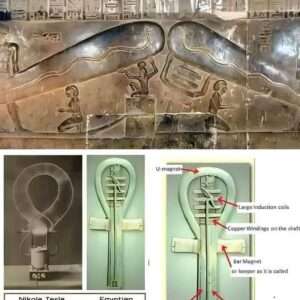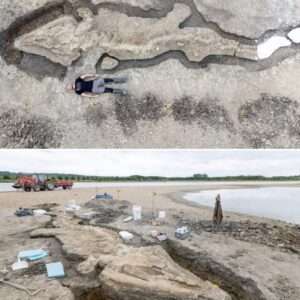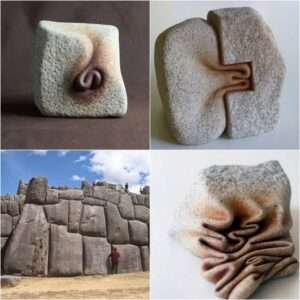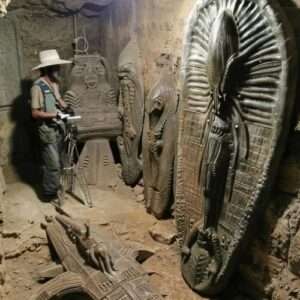The Library of Celsus, located in Ephesus, western Türkiye, holds significant historical importance as it was once the third-largest library in the Greco-Roman world, surpassed only by the libraries of Alexandria and Pergamum. With an estimated capacity of around 12,000 scrolls, it was a hub of intellectual activity during its time.
Commissioned in the 110s CE by Tiberius Julius Aquila Polemaeanus as a funerary monument for his father, Tiberius Julius Celsus Polemaeanus, the library was completed during the reign of Emperor Hadrian. The crypt beneath the library still preserves Celsus’s marble sarcophagus, adding to the historical richness of the site.

Although only its grand facade stands today, the Library of Celsus serves as a remarkable testament to the cultural and intellectual achievements of the era. Its architectural splendor and the wealth of knowledge it once housed are reminders of a bygone era of learning and scholarship.
Visitors to the Library of Celsus can marvel at the intricate details of its facade, which speaks volumes about the craftsmanship and dedication of the ancient builders. The site serves as a link to the past, allowing modern-day explorers to step back in time and immerse themselves in the world of ancient literature and scholarship.
The Library of Celsus is not just a building but a symbol of the power of knowledge and the enduring legacy of those who sought to preserve and expand it. Its presence in Ephesus is a nod to the vibrancy of the ancient city and its role as a center of culture and learning.
In conclusion, the Library of Celsus in Ephesus, Türkiye, stands as a testament to the intellectual curiosity and architectural prowess of its time. As visitors wander through its remains, they are reminded of the rich history and legacy of the ancient world, encapsulated within the walls of this magnificent structure.





